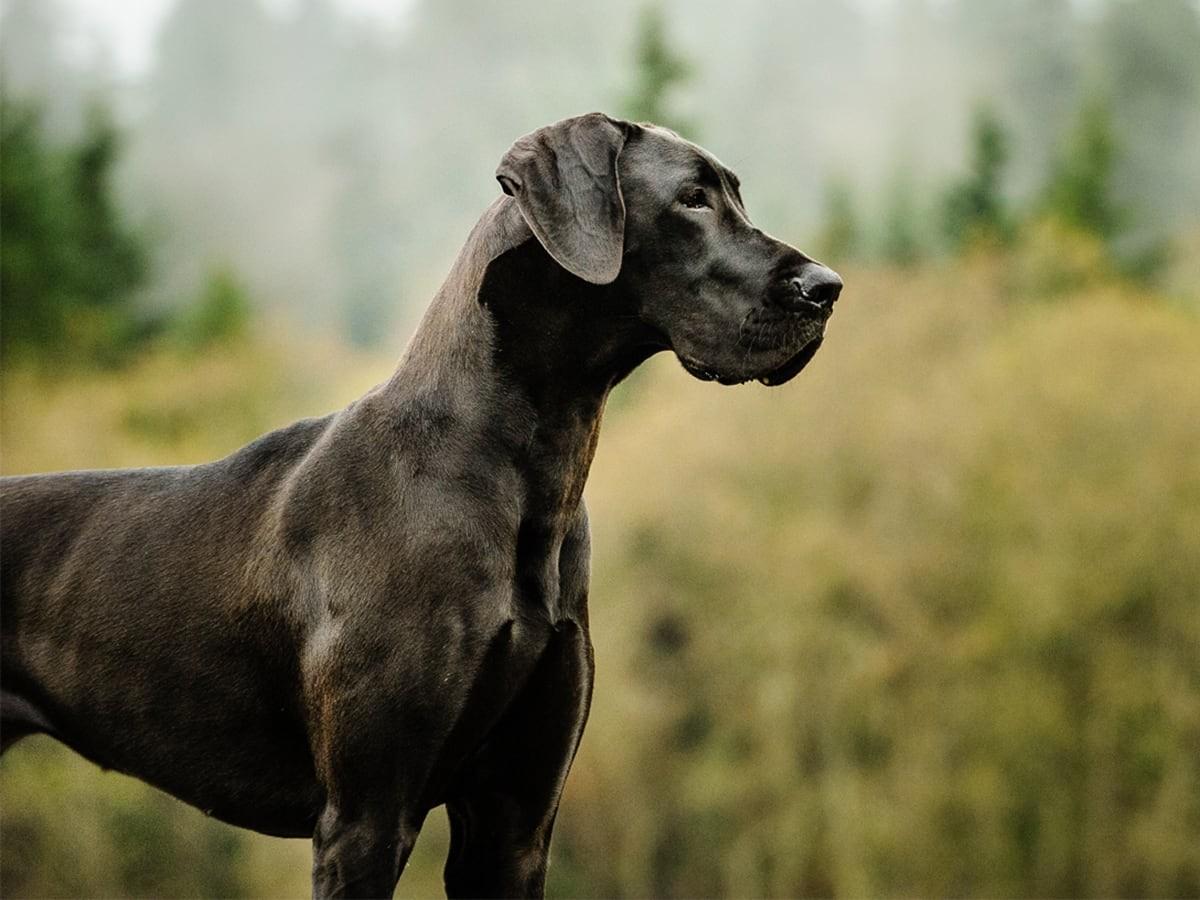Great Danes, with their majestic stature and gentle nature, are beloved companions. However, like all giant dog breeds, they are predisposed to certain health conditions. Understanding these potential issues can help you provide the best possible care for your Great Dane and ensure they live a long, happy life.
Do Great Danes Have a Lot of Health Issues?
Great Danes, like all large breeds, are predisposed to certain health conditions. While they are generally loving and healthy companions, understanding these potential issues can help you provide the best possible care for your Great Dane and ensure they live a long, happy life.
What is the lifespan of a Great Dane?
The average lifespan of a Great Dane is 8-10 years.
Common Great Dane Health Problems
1. Bloat (Gastric Dilatation-Volvulus)
Bloat, or gastric dilatation-volvulus (GDV), is a life-threatening condition where the stomach fills with gas and twists, cutting off blood supply. Great Danes, with their deep chests, are particularly susceptible.
Causes and Risk Factors
The exact cause of bloat is unknown, but risk factors include rapid eating, large meals, and vigorous exercise after eating. Genetics and stress may also play a role.
Signs and Symptoms
Distended abdomen
Restlessness, pacing
Unsuccessful attempts to vomit
Excessive drooling
Rapid, shallow breathing
Pale gums
Diagnosis and Treatment
Bloat is a medical emergency requiring immediate veterinary attention. Diagnosis involves physical examination, X-rays, and bloodwork. Treatment often includes stomach decompression, surgery to untwist the stomach, and supportive care.
2. Canine Dilated Cardiomyopathy (DCM)
DCM is a serious heart condition where the heart muscle becomes weakened and enlarged, affecting its ability to pump blood effectively.
Causes and Risk Factors
DCM can be genetic or caused by nutritional deficiencies (e.g., taurine deficiency). Great Danes are among the breeds predisposed to DCM.
Signs and Symptoms
Lethargy
Weakness
Coughing
Difficulty breathing
Fainting or collapse
Diagnosis and Treatment
Diagnosis involves a thorough physical exam, chest X-rays, echocardiogram, and electrocardiogram (ECG). Treatment aims to manage symptoms, improve heart function, and prevent complications. Medications, dietary changes, and lifestyle modifications are often recommended.
3. Joint and Bone Diseases
Hip Dysplasia and Osteoarthritis in Great Danes
Great Danes are prone to joint and bone issues, including hip dysplasia and osteoarthritis. Hip dysplasia is a genetic condition where the hip joint doesn't fit properly, leading to pain and arthritis.
Signs and Symptoms
Limping
Stiffness
Difficulty rising
Decreased activity
Reluctance to climb stairs
Diagnosis and Treatment
Diagnosis involves X-rays and physical examination. Treatment may include weight management, pain medication, physical therapy, joint supplements, and in severe cases, surgery.
Other Common Health Issues in Great Danes
Hypothyroidism: An underactive thyroid gland can lead to weight gain, lethargy, and skin problems.
Tricuspid Valve Disease: This heart condition can cause fluid buildup in the abdomen, difficulty breathing, and exercise intolerance.
Osteosarcoma (Bone Cancer): This aggressive cancer is more common in large breed dogs like Great Danes.
Addison's Disease: This hormonal disorder affects the adrenal glands and can cause weakness, vomiting, and diarrhea.
Expert Insights From Spot
Spot's data indicates that of the conditions mentioned in this article, bloat has the highest cost of treatment, with an average cost of $3,500. On average, the affected pets are around 4.6 years old. Thyroid conditions are also prevalent, usually diagnosed around 9 years old, while tricuspid valve disease can occur as early as 3.6 years old. Osteosarcoma is another serious condition with a high average treatment cost of $909. If you're considering adding a Great Dane to your family, understanding these potential health issues can help you prepare for their care.
Preventive Care for Great Danes
Prevention is key to maintaining your Great Dane's health and well-being. Here are some essential preventive care measures:
Regular Vet Checkups: Schedule regular veterinary exams to monitor your dog's health, detect early signs of disease, and receive appropriate vaccinations.
Balanced Diet: Feed your Great Dane a high-quality, balanced diet appropriate for their age and activity level. Consult your vet for specific dietary recommendations.
Weight Management: Maintain your Great Dane at a healthy weight to reduce stress on their joints and organs.
Exercise: Provide regular exercise, but avoid overexertion, especially during puppyhood, to protect developing joints.
Dental Care: Brush your dog's teeth regularly and schedule professional cleanings to maintain good oral health.
Key Takeaways
While Great Danes are susceptible to certain health problems, responsible ownership and proactive care can help them live long, fulfilling lives. By being aware of common health issues, practicing preventive care, and seeking prompt veterinary attention when needed, you can ensure your gentle giant remains happy and healthy for years to come. Visit our website to learn more about pet insurance or get a free quote.

I've had the privilege of immersing myself in the realm of pet safety. As the owner of an energetic mini golden doodle, I know just how stressful being a pet owner can be. I am dedicated to ensuring our beloved pets enjoy a life brimming with good health.












